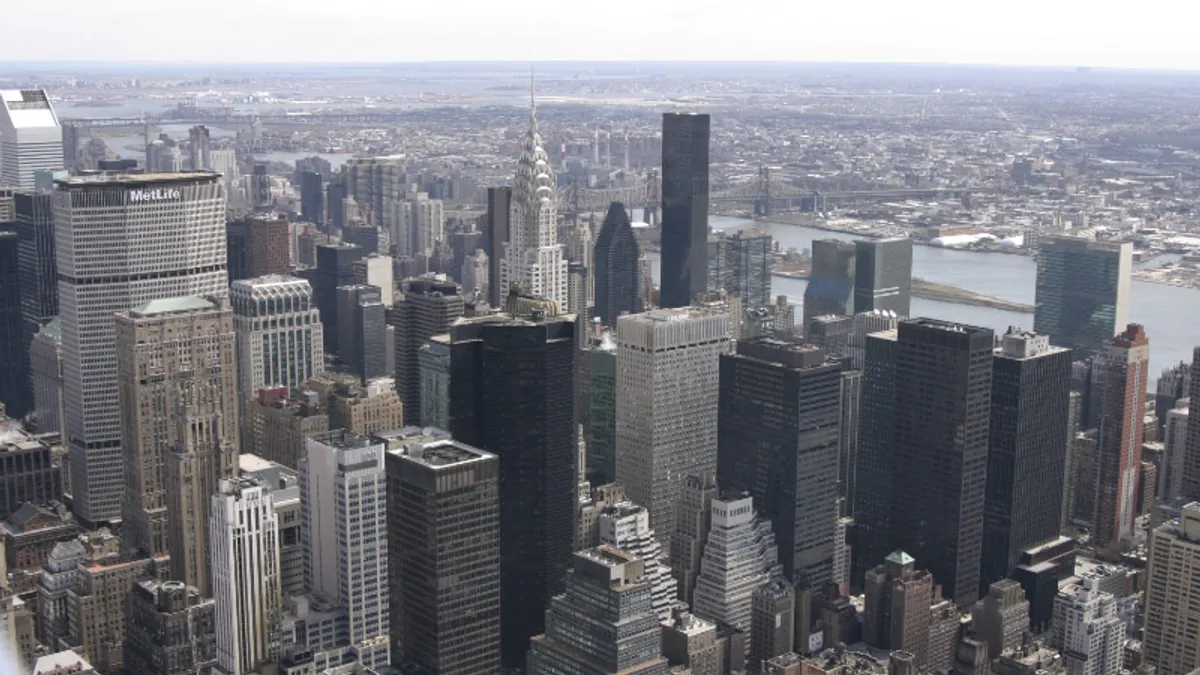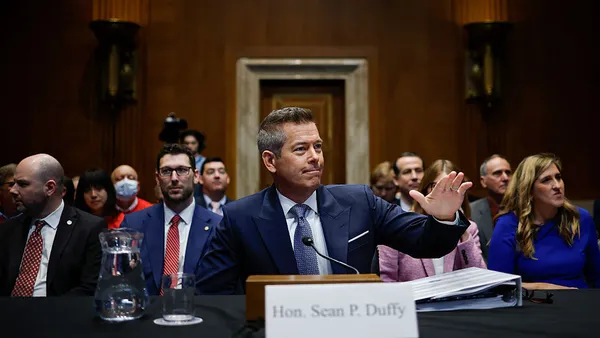Dive Brief:
- New York City's Department of Buildings (DOB) announced Wednesday that its final safety training requirements include a mandatory 40 hours for workers and 62 hours for supervisors, according to a DOB press release.
- The new requirements apply to those working at projects where the DOB mandates construction superintendents, site-safety coordinators or site safety managers to be present on site. Workers under the city's new safety regulations were already supposed to have taken at least 10 hours of safety training by March 1, 2018, or be able to prove that they have completed equivalent training in the previous five years. By Dec. 1, 2018, workers must complete 30 hours of training and supervisors 62. By May 1, 2019, workers must complete the total of 40 hours. The DOB said it could extend these deadlines if there are not enough available training programs.
- Workers can satisfy these requirements by taking a 30-hour OSHA course in addition to eight hours of fall prevention and two hours of drug and alcohol awareness. As another alternative, those required to complete safety training can do so by completing an OSHA 100-hour course, which is similar to the instruction provided to union apprentices. The city's Department of Small Business Services will offer free construction training to those looking for construction work.
Dive Insight:
Safety training requirements have been a contentious issue in New York City politics ever since 2015 when local lawmakers began investigating ways to reduce the rate of construction accidents. The rhetoric really heated up, however, when the New York City Council introduced a series of safety bills that included a requirement that workers complete 59 hours of safety training and an apprenticeship program. But many workers are unable to afford that much time for training, critics claimed at the time.
The furor over the originally proposed measures came down to the cost of implementing such a far-reaching program and also to that of a very familiar struggle – union versus nonunion. New York City Mayor Bill de Blasio opposed the apprenticeship requirement, along with the city's open-shop contractors, claiming that half of the city's apprenticeship programs were union-run and that using them for nonunion workers would be difficult. At the time, de Blasio suggested raising fines and increasing inspections as an alternative. Unions have long maintained that their training programs make for the safest workers. In September of last year, the city council passed its final safety legislation, leaving the apprenticeship requirement behind.













